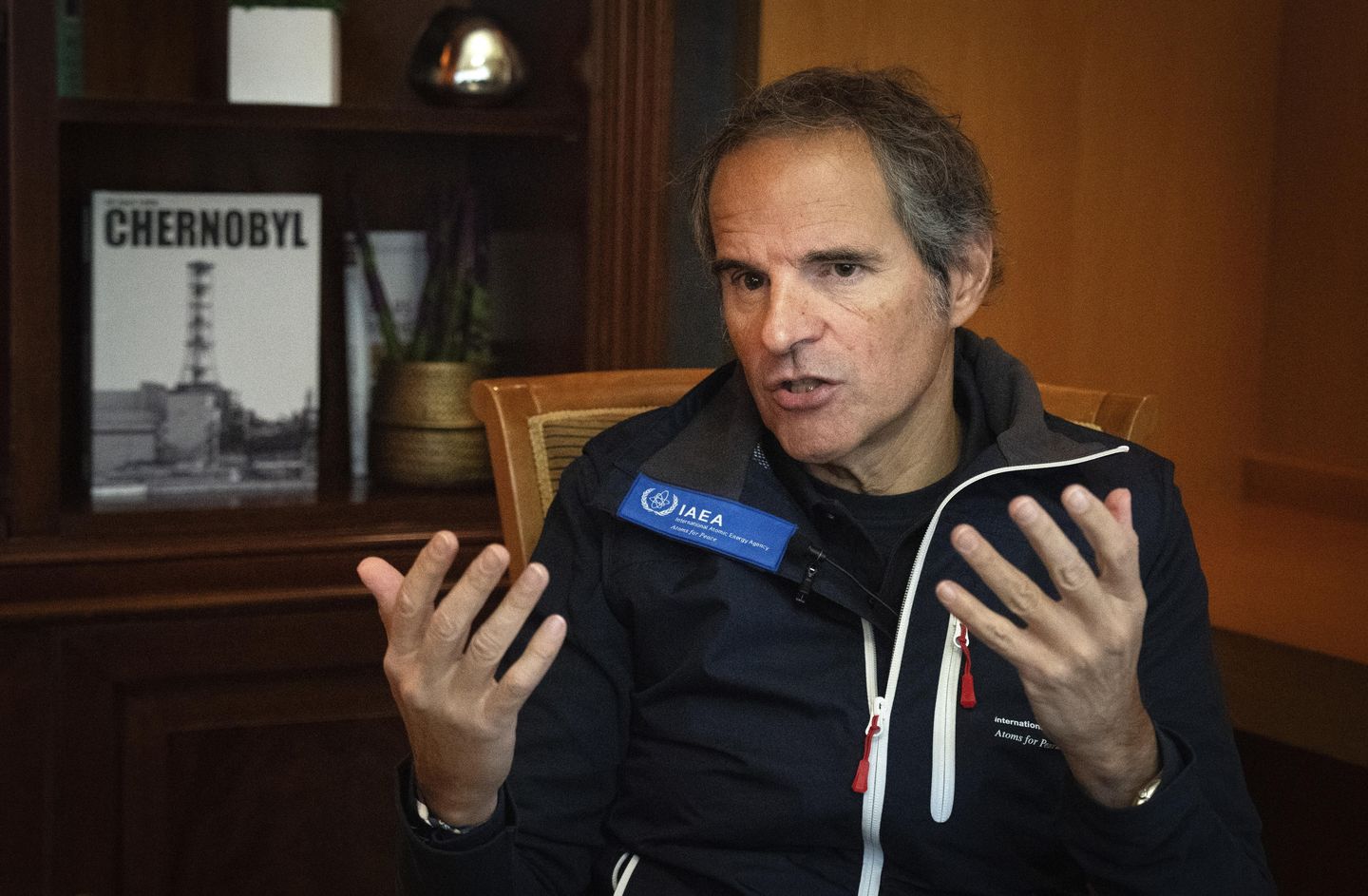Security at Ukraine’s Zaporizhzhia Nuclear Power Plant remains precarious following significant staff reductions imposed by Russian authorities overseeing the facility, a concern highlighted by Rafael Grossi, the head of the United Nations nuclear watchdog. The plant, ranked among the world’s ten largest nuclear power plants, has seen its workforce slashed from around 12,000 to between 2,000 and 3,000, a drastic reduction that raises operational concerns, according to Grossi.
Grossi, currently in Kyiv, expressed his intention to personally assess the impact of the recent personnel cuts during his forthcoming visit to the plant, particularly in light of Russia’s refusal to allow access to employees of Ukraine’s Energoatom. He emphasized the necessity of adequate staffing to manage the complex operations of such facilities, highlighting the delicate balance that currently exists.

U.N. Nuclear Chief Warns of Ongoing Fragility in Security at Ukraine’s Russian-Occupied Nuclear Power Plant (Credits: The Globe and Mail)
His visit coincided with the arrival of Josep Borrell, the European Union’s chief diplomat, in Kyiv. Borrell’s visit aimed to discuss military assistance, financial aid, and Ukraine’s aspirations for EU membership. While the EU pledged substantial financial support, military aid has fallen short, leaving Ukraine’s forces grappling with shortages amid ongoing Russian aggression.
The uncertainty surrounding further assistance from the United States, Ukraine’s primary supplier, adds to the critical nature of the current situation. President Volodymyr Zelenskyy has hinted at potential leadership changes to invigorate Ukraine’s response to the conflict.
The International Atomic Energy Agency (IAEA) has repeatedly expressed concerns about the Zaporizhzhia facility’s vulnerability, given its proximity to the conflict zone. The plant, which has been the target of attacks since the onset of the conflict, remains a focal point of international concern.
Grossi also highlighted ongoing challenges, such as the stability of the facility’s cooling systems following the collapse of the Kakhovka Dam and the presence of mines in the vicinity. Despite these challenges, he noted that the situation within the plant remains stable but fragile, requiring constant vigilance.
Of particular concern is the Russian decision to replace Ukrainian staff with individuals who have adopted Russian citizenship and signed contracts with the Russian operator, exacerbating tensions and complicating oversight efforts.
Grossi plans to meet with Ukrainian officials before visiting the plant and subsequently traveling to Moscow for discussions with Russian authorities. However, access to certain areas of the facility remains restricted, hindering comprehensive inspections.
In other developments, a Russian missile strike in Ukraine’s Kharkiv region resulted in civilian casualties, while Russian forces claimed to have intercepted drones launched from Ukraine towards Russian territory. Heightened security measures have been implemented in Russian Baltic Sea ports in response to the ongoing threat of Ukrainian drone attacks.
Both Ukraine and Russia continue to rely on long-range attacks as the conflict persists along the extensive front line.























